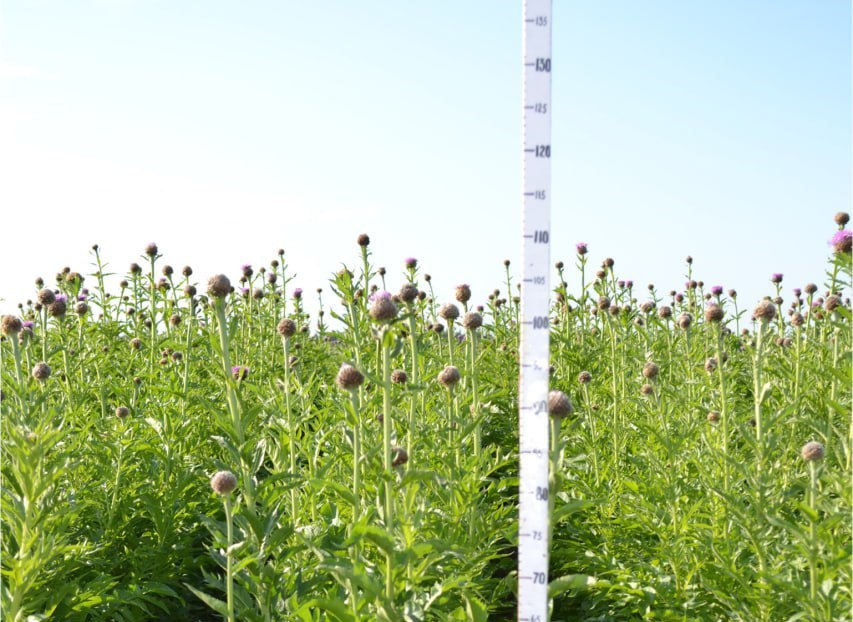
Leuzea safflower (Raponticum safflower) is a highly productive forage plant that can increase the immune status of farm animals and poultry, as well as soil fertility.
The presence of biologically active substances in its composition allowed in 2022 the Perm Research Institute of Agriculture, a branch of the PFIC Ural Branch of the Russian Academy of Sciences, to register the herb Leuzea safflower also as a biologically active food additive. And in the spring of 2023, marmalade without dyes and preservatives
The Permskaya confectionery factory began producing with the addition of Leuzea safflower.
The perennial plant of the aster family has a unique composition: many esters, resins, tannins, alkaloids of vitamin C, A, anthrachions (peristaltic detoxicants), natural inocosterone, inulin, coumarins, anthocyanins, flavonoids, citric, succinic, oxalic acid, gum, catechins, retinol, minerals, phosphorus, calcium.
The development of technologies for the cultivation and use of Leuzea safflower – among other feed crops containing biologically active substances – is being carried out by scientists from the laboratory of biologically active feeds, created at the Perm Research Institute of Agriculture in 2019.
More details on the RAS website.
